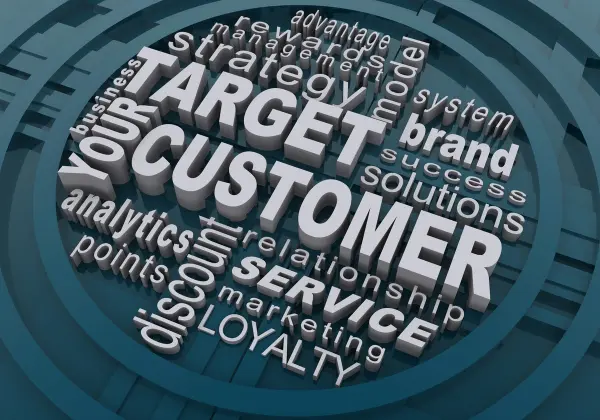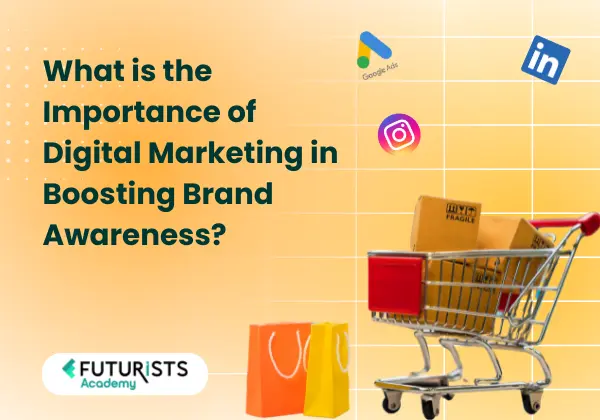Increasing brand awareness is more important than ever in the fast-paced, fiercely competitive market of today. The degree to which your target market is aware of your brand and its products is known as brand awareness.
It establishes the framework for client engagement along with loyalty and acts as the initial stage in the marketing funnel. Businesses need more brand awareness to build a loyal consumer base, recognition and trust.
Digital marketing is the Saviour, which is an environment full of resources and avenues for increasing the visibility of your company.
We’ll explore the importance of digital marketing in this blog, as well as how effective it is in raising brand awareness in the current digital era.
Importance of Digital Marketing in Boosting Brand Awareness
1. Increased Brand Reach and Visibility
The potential to expand brand reach well beyond the bounds of traditional marketing is one of the main advantages of digital marketing. Brands may reach millions of potential customers worldwide by utilizing techniques such as search engine optimisation (SEO), content marketing and social media marketing.
These digital mediums give people who might not have otherwise come across your brand the chance to do so. Viral marketing and social media audience interaction also help to increase brand visibility.

2. Targeted Audience Engagement
Targeted campaigns that speak to the most relevant audience segments are made possible by digital marketing.
You can target your campaigns to particular audience demographics via email marketing, social media ads, or SEO to make sure that your brand message reaches the people who are most inclined to interact with your items.
The process of producing content with a specific audience in mind increases the likelihood of forging deep connections and building brand awareness.
3. Building Brand Trust and Credibility
In the era of digitalization, brands need to establish their credibility and reliability. This can be accomplished by regularly producing valuable material for the audience, whether it takes the kind of blogs, videos, or social media updates.
Influencer marketing, testimonials and positive internet reviews are all very important in increasing the reputation and legitimacy of a business. Customers are more likely to remember and support a brand when they have faith in it.

4. Fostering Brand Loyalty and Advocacy
Interactive campaigns and brand community building are made possible by digital marketing, especially when social media involvement is included. Positive consumer experiences increase the likelihood that they will turn into brand ambassadors that voluntarily raise awareness of your company.
Your brand may expand its audience and gain more clout by cultivating client loyalty through relevant interaction and tailored content.
5. Measurable Results and Data-Driven Optimization
Digital marketing, in contrast to traditional marketing, uses tools like conversion monitoring, social media insights and website analytics to provide quantifiable outcomes. Businesses can use this data to monitor the success of their campaigns and adjust their strategy as necessary.
Brands can optimise their efforts to increase brand recognition and enhance their strategy by implementing data-driven modifications.

6. Cost-Effective Marketing Strategies
There are a lot of affordable solutions available with digital marketing, especially when compared to traditional forms of advertising. Strategies like content production, social media marketing and organic SEO are low-cost but very effective in raising brand awareness and audience participation. This opens up the possibility of digital marketing to companies of all kinds.
7. Building Brand Reputation Management
Through monitoring technologies that analyse brand mentions and customer comments, brands may actively manage their online reputation through digital marketing. Brands may preserve a solid online reputation by immediately reacting to customer feedback, both positive and negative.
Maintaining a positive brand perception among your target audience requires careful attention to your reputation.

Content Marketing
Creating content continues to be one of the best strategies for establishing credibility and increasing brand recognition. By regularly releasing informative or entertaining content, you establish your brand as a go-to source. For instance, HubSpot has effectively cultivated brand awareness in the marketing sector through content marketing.
Search Engine Optimization (SEO)
For your website to receive more organic traffic, SEO optimisation is crucial. Potential clients can find you more often if you use optimised content, high-quality backlinks and targeted keywords to raise your search engine ranks. By concentrating on effective SEO methods, numerous firms have experienced considerable growth.
Social Media Marketing
Social media marketing gives firms access to millions of consumers on Facebook, Instagram and Twitter, among other sites. Regularly posting content, sharing anecdotes and hosting live sessions with your audience fosters a human connection that increases brand identification and loyalty.

Pay-Per-Click (PPC) Advertising
PPC advertising puts your brand in front of potential customers, which yields immediate results. You can make sure your business shows up in relevant search results or social media feeds by using tools like Google advertisements or social media advertisements.
Influencer Marketing
Influencer marketing is a strategy that uses social media influencers to market your brand. Working with influencers who share your values will allow you to reach their already-existing audiences and greatly increase brand recognition.
Email Marketing
Email marketing is still a very effective strategy for increasing brand loyalty and consumer interaction. Businesses can cultivate relationships and maintain brand awareness with customised marketing.

Public Relations and Online Reputation Management
Public relations initiatives, such as news releases, media outreach, and strategic alliances, can help brands increase awareness even further. Building brand recognition also requires maintaining a positive internet reputation.
Leveraging User-Generated Content for Brand Awareness
In digital marketing, user-generated material, or UGC, has grown to be an invaluable resource. User-generated content (UGC) gives your audience a voice in the narrative of your business through social media posts, customer evaluations and testimonials.
Relying on user-generated content (UGC) to sell their products, GoPro and other successful firms have used UGC to strengthen their brand presence. In addition to boosting interaction, encouraging UGC also helps to establish credibility with prospective clients.
Measuring the Success of Your Brand Awareness Campaigns
Monitor data like brand mentions, social media engagement, website traffic and brand sentiment research to gauge the success of your brand awareness efforts. These metrics may be monitored with the use of tools like Google Analytics and Hootsuite, which can offer insights into what is and is not functioning well.
Conclusion
Increasing brand exposure is made possible by digital marketing. Brands may reach a worldwide audience, encourage client loyalty and establish a solid, trustworthy position in the market with the appropriate approach. Your brand will develop as you put these methods into practice and establish itself as a reputable and well-known name in your sector.

